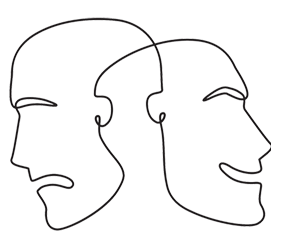Divorce Group
Online Divorce Support Group
“Awareness is like the sun. When it shines on things, they are transformed.”
- Thich Nhat Hahn

overview
Divorce Support Group
We understand that it's important for you to have support while you are going through these tough emotions. There are several types of groups that you can join, including:
Online divorce support groups: These are virtual groups where members can connect with others who are experiencing divorce. They can be found on social media platforms or through websites that specialize in divorce support.
In-person divorce support groups: These are groups that meet in person and provide an opportunity for members to connect face-to-face. Some of the time, these groups are organized by local community organizations, religious institutions, or mental health professionals. You can also look on the website.
Divorce recovery groups: These groups are designed to help individuals heal and move on after divorce. They often include a combination of therapy, counseling, and support groups.
Co-parenting support groups: These groups are focused on helping individuals navigate co-parenting relationships after divorce. They can provide tips, strategies, and resources to help parents work together effectively.
When looking for a divorce group either online or in the area, it's important to find one that meets your needs and feels comfortable to you. You can start by asking for recommendations from friends, family, or mental health care professionals.
Divorce on Children Is Hard
Divorce can have a significant impact on children, both in the short-term and long-term. Some of the effects of divorce on children can include:
Emotional distress: Children may experience a range of emotions, including sadness, anger, anxiety, and confusion. They may feel like they are in the middle of a conflict between their parents, and may blame themselves for the divorce.
Behavioral problems: Children may act out in response to the stress of the divorce, engaging in behaviors like aggression, disobedience, and withdrawal from social activities at school.
Academic difficulties: Divorce can also have a negative impact on children's academic performance. They may have trouble concentrating, completing assignments, or attending school regularly. We recommend speaking to the School's local therapist for additional support.
Health problems: Children of divorced parents may be at a higher risk for physical and mental health problems, such as depression, anxiety, and substance abuse. If you notice your child may be under the influece of substances or having severe depression, please call your community family therapist.
However, it's important to note that not all children of divorce will experience these negative effects. The severity of the impact depends on factors like the child's age, gender, personality, and the nature of the divorce itself. Additionally, many children are able to overcome the challenges of divorce with the support of their parents, friends, and other caregivers.
Co-parenting After Divorce
Co-parenting after divorce can be challenging, but it's important for the well-being of the children involved. Here are some tips for successful co-parenting:
Communicate effectively: Communication is key in any co-parenting relationship. It's important to keep each other informed about the child's activities, appointments, and any changes in their schedule. Make an effort to communicate in a respectful and non-confrontational manner.
Establish a parenting plan: Develop a parenting plan with your ex-spouse that outlines the custody arrangement, schedules, and any other important details. Stick to the plan as much as possible to provide stability and consistency for your children.
Put the children first: It's important to prioritize the needs of the children over your own personal conflicts or disagreements. Avoid speaking negatively about your ex-spouse in front of the children, and encourage them to maintain a positive relationship with both parents.
Be flexible: There may be times when the parenting plan needs to be adjusted due to unforeseen circumstances. Be open to being flexible and accommodating when needed.
Seek support: Co-parenting can be stressful and challenging, so it's important to have a support system in place, especially where you reside. This can include friends, family members, or even a therapist or a local mediator.
Remember, successful co-parenting requires effort and a willingness to put the needs of the children first. With time, patience, and commitment, it is possible to co-parent effectively after a divorce.
Divorce & Grief
Grief is a common experience after a divorce. It is important to acknowledge and process these emotions in a healthy way to move forward. Here are some tips for dealing with grief after divorce:
Allow yourself to feel: It is important to give yourself permission to feel your emotions, whether it is sadness, anger, confusion, or all of the above. It is natural to grieve the end of a marriage and the loss of a future you had envisioned for yourself.
Seek support: Reach out to trusted friends in and family members for emotional support. Consider joining a YANA Support group to help you through the divorce, it's advisable to speak with a local therapist in to help process your emotions.
Take care of yourself: Self-care is crucial during the grieving process. Eat well, exercise, and get enough sleep. Take time for yourself to do things you enjoy, whether it’s reading a book, taking a bath, or spending time with friends.
Avoid unhealthy coping mechanisms: While it may be tempting to turn to alcohol, drugs, or other unhealthy coping mechanisms, these behaviors can prolong the grieving process and harm your physical and mental health.
Give yourself time: Healing after a divorce is a process that takes time. Allow yourself the time you need to grieve, process your emotions, and eventually move forward.
Remember that everyone grieves differently, and there is no "right" way to cope with the end of a marriage. Be kind to yourself and seek support when needed to help you navigate this difficult time. For more information on Divorce and Grief, please visit the YANA.SUPPORT website on Divorce Groups.
Women Divorce Groups
There are many different types of divorce groups for women available, both in-person in and online. Here are some examples of the types of women's divorce groups that may be available:
Support groups: These groups are focused on providing emotional support and a safe space for women to discuss their experiences and feelings around divorce.
Educational groups: These groups are focused on providing women with information and resources to help them navigate the divorce process. This may include legal and financial information from local attorneys, co-parenting strategies, and self-care tips.
Therapy groups: These groups are led by licensed therapists in and are focused on helping women process their emotions and work through any mental health issues related to divorce.
Faith-based groups: These groups are centered around a particular faith or religious belief system and may offer support and guidance through a spiritual lens.
Social groups: These groups are focused on providing women with a sense of community and social support during the divorce process. This may include social outings, activities, and events.
Online groups: There are many online divorce groups for women, which can be particularly useful for women who don't have access to in-person groups in the area. Online groups may be structured as support groups, educational groups, or therapy groups.
Overall, there are many different types of divorce groups for women available, and it's important to find a group that fits your specific needs and goals. You may want to research local groups in the community or look on YANA to find the right group for you.
Men Divorce Support Group
Men can learn a variety of things in a divorce group, depending on the focus and structure of the group. Some potential benefits of joining a divorce group for men can include:
Coping skills: Divorce can be a difficult and emotionally challenging experience. A divorce group can provide men with practical coping strategies to help them manage their emotions and navigate the process.
Support: Men may feel isolated or unsupported during a divorce, especially if they don't have close friends or family members to turn to. A divorce group can offer a sense of community and support from others who are going through similar experiences.
Legal and financial guidance: Divorce can be complicated from a legal and financial perspective. A divorce group may provide information and resources to help men navigate these aspects of the process.
Co-parenting strategies: For men who have children, a divorce group can offer guidance and support on co-parenting after divorce. This can include tips for effective communication with an ex-spouse, strategies for managing conflict, and resources for navigating custody and visitation agreements.
Self-reflection and personal growth: Divorce can be an opportunity for self-reflection and personal growth. A divorce group may offer men a safe space to explore their emotions, reflect on their past relationship patterns, and set goals for their future.
Overall, a divorce group can provide men with a supportive and informative environment to help them navigate the challenges of divorce and emerge stronger on the other side.
Let's Talk
You will receive a 15 minute phone call from our group leader, as an introduction to the program and to discuss suitability. This is free and without obligation.


















